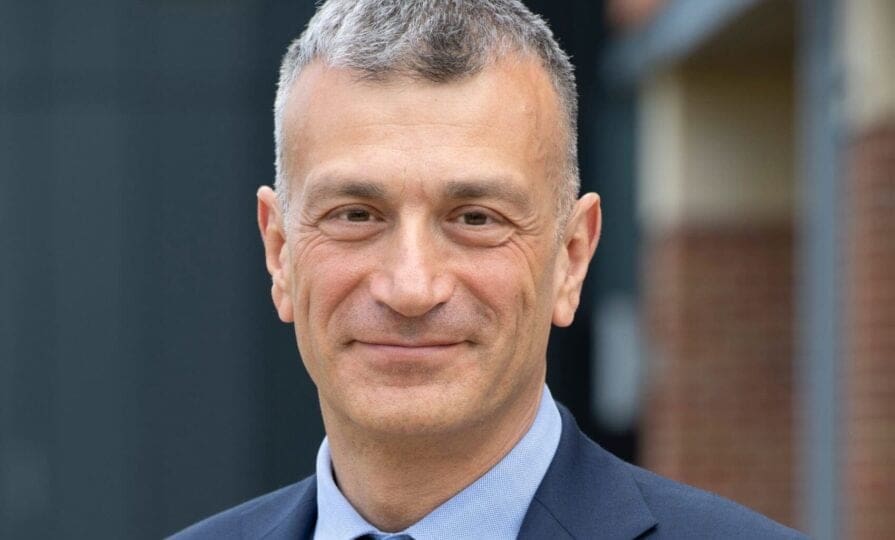Creating citizens, not subjects: draconian school rules harm education rather than help
By Dr. Nikos Savvas DL, CEO of Eastern Education Group

Register to get 1 free article
Reveal the article below by registering for our email newsletter.
Want unlimited access? View Plans
Already have an account? Sign in
As educators, we must continually ask ourselves: what kind of society are we trying to create?
Should we be training students to follow rules without question, preparing them for lives filled of unquestioning conformity and compliance? Or, should we be creating environments where young people can develop into independent thinkers, innovators, and the leaders we need for the future?
Proliferated by multi-year teacher recruitment crisis, in response to reports of worsening behaviour from students, with fewer teachers in place to prevent and manage it, there has been an alarming increasing in stories of schools introducing new approaches to clamp down disruption with draconian and extreme measures. Most recently this has been the idea of ‘silent transition’ between classes for students. In schools where silence is mandated, where children walk in lines with their eyes forward and their voices suppressed, I don’t see discipline – I see something tantamount to abuse. Creating an environment that increasingly resembles penitentiary institutions rather than places of learning, serves neither our children nor our society.
When we force children into silence, we don’t eliminate their need for social interaction, we simply push it into unsupervised spaces or other environments. In today’s society, the place this interaction will be pushed into is the digital world, with all of its lack of restrictions, lack of boundaries and enablement of dangerous and damaging interactions for young people.
It’s shortsighted to consider restrictive measures at secondary schools in isolation. We’d be disturbed by a silent primary school playground—why should expectations shift so drastically for older children? Secondary education often pivots from the nurturing focus of primary school to suppressing curiosity, pushing students into rote learning to pass exams. Yet, this shift is rarely linked to the increasingly harsh behavior management used to maintain order. This approach often breeds boredom and disengagement, leaving adolescents feeling isolated and uninspired. Combined with the hormonal and emotional changes of adolescence, it’s no surprise they begin testing boundaries and experimenting with self-expression. Schools then respond with even harsher measures, perpetuating the cycle.
The ‘success’ of these increasingly restrictive behavioural policies in some secondary schools further raises a troubling question: at what point do these restrictions get lifted? When do young people learn to self-regulate if they’ve never been allowed to do so? How do they learn to create positive relationships with peers and adults if these interactions are constantly policed?
That is not to say that schools should operate without restriction or discipline around appropriate behaviour and conduct. Instead, when students misbehave, we need to understand why, rather than simply imposing punishments. In all of the schools across our Trust, we expect children to be respectful, of each other, their teachers, and their environment – and we are taking concrete steps to nurture these skills. In our primary schools, we have Year 6 peer mediators that are trained to help resolve conflict in the playground. Furthermore, we also train our teachers to challenge inappropriate behaviour in ways that help young people learn through example, rather than preventing them from expressing their individuality. The distinction is crucial.
However, we also, ultimately, expect our children to be children. I am certain that every teacher agrees that when you let young people be themselves, and in turn, you create the right relationships with them, your ability to transform their lives becomes incredibly significant. The voices of children matter, and when we give them responsibility, they repay our trust many times over. This approach requires investment, time to train teachers, time to train students, but what we get in return are the true citizens of the future.
Schools must be places where children grow into responsible, healthy citizens full of curiosity and act as places they want to return to for lifelong learning. Similarly, young people need to be given the opportunity to engage with and understand different viewpoints and create meaningful relationships in order to thrive. Do we want to create independent thinkers who will shape tomorrow’s world? Or do we want compliant workers who never question authority? The former can never develop in settings where children’s voices are systematically silenced.

